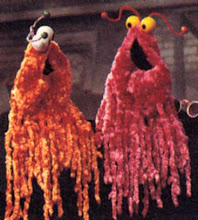
see more crazy cat pics
the rain does not fall down (not even mainly on the plain, not even in spain -- and certainly not in south bend) because it's winter. despite the fact that we've passed the vernal equinox, despite the fact that i am in sandals, it appears that we are still in winter. i am trying not to despair over this.
i am also trying not to write about the weather so often on this blog -- but it's to the point of tears, despair, and desperation every time i hear the word "snow." or "below freezing."
i want to plant my garden. my garden right now is full of trash -- an old pumpkin, someone's old coke box for a 24 pack, several plastic bags. they've been frozen there all winter. and they ain't the easiest to clean up when they're encased in ice. so, i'm keeping hope alive (that thing with feathers, you know) by dreaming up my garden, by thinking about where else i could dig a garden, by plotting (ha! no pun intended) and planning my garden. lantanas. sweet williams. verbena. impatiens. bloodleaves. and this time around, because i'm getting all hippie (getting?) and environmentalist -- and because anything that tastes good is wicked expensive at the store -- my own tomatoes, my own peppers, my own basil and oregano. (because those are the only things i know how to cook with).
and it is the province of poets to write using as many flower names and plant names as possible. we used to mock this a bit in graduate school -- no one can just say "flower"; they must say, "five-petaled vinca." no one can say "tree"; they must say, "loblolly pine." but truly -- the word "vinca" or "loblolly" is just so much. . . better than the other words. richer. sweeter. a wealth of sound and image, packed into each word. i'm defending myself here, of course, too -- i'm a sucker for plant names, much like i'm a sucker for the names of constellations and towns and even haircut places -- i once thought of doing a coffee table book on just the bad puns of haircut places: "curl up and dye," "the best little hairhouse in denver," "shear perfection."
but i digress. mostly, i like the story and history in specific names, and the image and sound that accompany them so easily. i like specifics in general (paradox?) and so i thought of this poem -- just the town names, the specificity of lunch and the car, of the colors of the farmhouse, the multiple senses this poem opens itself up to with ease and grace -- these all fill me with light. and i'm in need, again, of a little light. this poem is one of my all-time favorites; it's so full of hope and detail, and its ending is so wonderfully, gorgeously rich in sound that it makes me happy just to hold the words in my mouth. and it makes me think of a time -- sometime soon, we can hope -- when there aren't remnants of snow on all the roads, when there's just pure spring, when the day is, indeed, a woman who loves you.
Driving Montana
~ Richard Hugo
The day is a woman who loves you. Open.
Deer drink close to the road and magpies
spray from your car. Miles from any town
your radio comes in strong, unlikely
Mozart from Belgrade, rock and roll
from Butte. Whatever the next number,
you want to hear it. Never has your Buick
found this forward a gear. Even
the tuna salad in Reed Point is good.
Towns arrive ahead of imagined schedule.
Asborakee at one. Or arrive so late --
Silesia at nine -- you recreate the day.
Where did you stop along the road
and have fun? Was there a runaway horse?
Did you park at that house, the one
alone in a void of grain, white with green
trim and red fence, where you know you lived
once? You remembered the ringing creek,
the soft brown forms of bison.
You must have stayed hours, then drove on.
In the motel you know you'd never seen it before.
Tomorrow will open again, the sky wide
as the mouth of a wild girl, friable
clouds you lose yourself to. You are lost
in miles of land without people, without
one fear of being found, in the dash
of rabbits, soar of antelope, swirl
merge and clatter of streams.
(published in Making Certain It Goes On: The Collected Poems of Richard Hugo. New York: W.W. Norton & Company, 1984).
